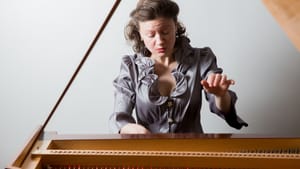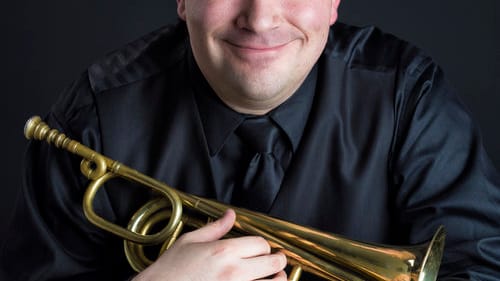Stay in the Loop
BSR publishes on a weekly schedule, with an email newsletter every Wednesday and Thursday morning. There’s no paywall, and subscribing is always free.
Music is the best medicine
PhilaLandmarks presents 'Across the Pond' by Grand Harmonie

PhilaLandmarks Early Music Series opened an 18th-century wormhole on South Fourth Street. I walked past the block where Francis Johnson lived on Fourth Street (the first African American person to have his music published) and on to the Hill-Physick House in the misty rain to hear the company’s Across the Pond. It felt like traveling back in time.
Old City still breathes its history, and the dim stoop of the Hill-Physick House — built in 1796 — seems almost unchanged. The museum has preserved many relics of life inside its walls. Upstairs are displays of Dr. Philip Syng Physick’s innovations in medical research, including neat little handsaws for amputations.
Piano doctor in the house
Physick was born the year the house was built and studied medicine in London, returning to Philadelphia in 1792. He pioneered the use of the stomach pump, warned Andrew Jackson that smoking would hurt his lungs, and successfully removed kidney stones from Chief Supreme Court Justice John Marshall, who was cured. To top it off, he invented America’s first soda: Dr. Physick’s.
The concert was held downstairs in a room with an 1806 Broadwood fortepiano, an elegant piece of furniture made by John Broadwood, one of London’s foremost piano makers. The inscription on the instrument is still legible, in spite of its past neglect.
The instrument was an albatross at the Curtis Institute until an astute piano restorer, Dale Munschy, picked it up for free and later invited Sylvia Berry to see it. “That line would only work for about four people in the entire world,” she gaily announced to the audience. It worked, apparently, because she married Munschy and he restored the piano.
The instrument represents a pivotal moment for Broadwood. He invited none other than Franz Josef Haydn to practice on the pianos in his studio while the composer was in London; the two became friends.

Broadwood moved the pedals on this fortepiano to the feet (pedals were previously operated by the knee). Each foot lifts the dampers for half the keyboard, so, in order to undamp the strings for the whole keyboard, the player must depress both pedals at once (which Berry accomplished using a particular pair of red shoes).
Trumpet tour
Berry played Haydn’s Piano Sonata Hob. XVI:50, composed in 1794 (after Haydn met Broadwood). This was the first sonata where Haydn called for open pedal. She played the sonata’s fast movements expressively and the effect of lifting the dampers was far subtler than on a modern piano, making the sound shimmer rather than drown in muddy syrup.
For modern tastes, the slower movement of Haydn’s sonata sounded dry because the sound does not last long. Thus, on this instrument, musical lines are difficult to phrase in a coherent and connected flow. But Berry’s mastery of articulation, phrasing, and ornaments was marvelously clear for the same reason.
Berry accompanied Chris Belluscio on a trumpet tour of three historical instruments. Starting with the English slide trumpet, made by Frederick Pace of London (ca. 1840), he briefly played the Introduction and Allegro from John Norton’s 1827 Preceptor for the Trumpet. Norton was an English musician who emigrated to Philadelphia.
Belluscio then picked up his B-flat Cornopean by J.A. Kohler, 1850 and played the rest of the Norton suite with Berry. But the lively sound of the B-flat-keyed bugle, an 1830 instrument by Samuel Graves, brought out the exuberance of Francis Johnson’s music. He played “Recollections of Buffalo” and the hilarious “Philadelphia Fireman’s Cotillion.” The concert ended with the latter piece, and together the audience yelled “Fire! Fire!” on cue.
The keyed bugle Belluscio played was almost exactly like the one Johnson played, and its sound echoed through my head as I headed back up the darkened streets of Old City.
What, When, Where
Across the Pond. Sylvia Berry, fortepiano; Chris Belluscio, historic trumpets. "Airs from Vauxhall Gardens," by G.F. Handel; Suite from Norton’s Preceptor for the Slide Trumpet, by John Norton; Piano Sonata in C Major, Hob. XVI:50, by F.J. Haydn; "Let me Like a Soldier Fall," by Vincent Wallace; "Ave Maria," by Franz Schubert; "Pretty Jane," by Sir Henry Bishop; "Philadelphia Firemen's Cotillion," by Francis Johnson. Grand Harmonie, PhilaLandmarks Early Music Series and the Berry Collective. February 15, 2018, at the Hill-Physick House, 321 S. Fourth Street, Philadelphia. (215) 925-2251 or philalandmarks.org.
Sign up for our newsletter
All of the week's new articles, all in one place. Sign up for the free weekly BSR newsletters, and don't miss a conversation.
 Margaret Darby
Margaret Darby